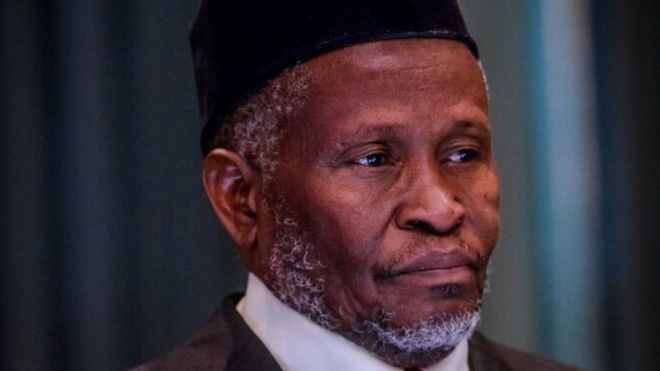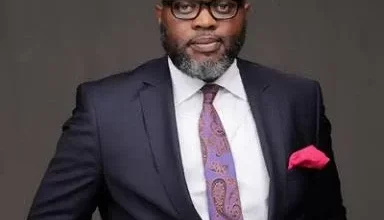
- The Attorney General of the Federation, Abubakar Malami, and the Chief Justice of Nigeria, Justice Tanko Muhammad, have differed on the independence of the country’s judiciary.
The Attorney General of the Federation, Abubakar Malami, and the Chief Justice of Nigeria, Justice Tanko Muhammad, have differed on the independence of the country’s judiciary.
While Malami insists the judiciary is fully independent, the CJN thinks otherwise.
They spoke at the opening ceremony of the 2019 Nigerian Bar Association Annual General Conference at Eko Hotel in Lagos on Monday.
Muhammad said the future of the Nigerian judiciary was bright.
He said he was focused on reinventing the processes of the judiciary to ensure a speedy justice dispensation and rid the institution of corruption.
He said although some might describe the future (of the judiciary) as bleak, “for the judiciary under our watch, I can assure you that, by the grace of God, the future looks bright”.
He said, “Since my appointment as Chief Justice my focus has been on reinventing our processes, providing a speedy and quality administration of justice, strengthening our structures from the Supreme Court to other courts and stamping out corruption from the system.”
Muhammad said the judiciary under him was embracing technology to fast-track its processes, adding that Supreme Court and Court of Appeal Justices had forgone their annual vacation this year to clear the backlog of “time-sensitive cases”.
He told lawyers to desist from filing needless appeals at the Court of Appeal and the Supreme Court, warning that the apex court would punish “blatant abusers of the court processes”.
The CJN added that the judiciary would not lose “its firm grip on the mantle of honesty, transparency and integrity”.
He added, “Let me assure this assembly; we don’t look at anybody’s face or feelings before taking our decisions.
“If there is any deity to be feared, that deity is the Almighty God. We will never be subservient to anybody, no matter how highly placed.”
However, the CJN admitted that the judiciary was not truly independent, especially in the states, because the executive was in control of its funding.
He said, “If you say that I am independent, but in a way whether I like it or not, I have to go and bend down, asking (for funds) I have lost my independence.”
But Malami, who declared the conference open on behalf of President Muhammadu Buhari, said the Buhari administration had ensured the independence of the judiciary.
According to Malami, to demonstrate it is not dictating to the judiciary, the Federal Government accepts adverse court judgments without questions.
He also said the Buhari government was committed to strengthening institutions in the country.
The Senior Advocate of Nigeria said, “We have had to disrupt the age-long wrong assumptions and historical narratives of the presumed immunity of sacred cows in our society, simply to demonstrate that henceforth the law will be used as a potent instrument to regulate the activities of all persons and institutions in our country in a fair and transparent manner.”
Malami reiterated the Federal Government’s resolve to probe the circumstances surrounding the failed power project leading to $9bn arbitration award against Nigeria in favour of a British firm, P&ID.
He said all culpable individuals and corporate bodies would be punished.
Malami said, “It is a sad testimony to potential for national economic disaster when legal issues are handled ether in a compromised, ignorant or incompetent manner.
“Let me inform that without prejudice to our right to challenge this award, Mr President has already directed the Office of the Attorney General of the Federation and Minister of Justice to ensure that all issues related to the negotiations, signing, formation and obvious frustration of the purported contract are duly investigated and all persons and institutions, whether in the private or public sector, who acted in ways that have now caused our dear nation a potential economic adversity and widespread opprobrium are made to face the law and prosecution in the law court.”



